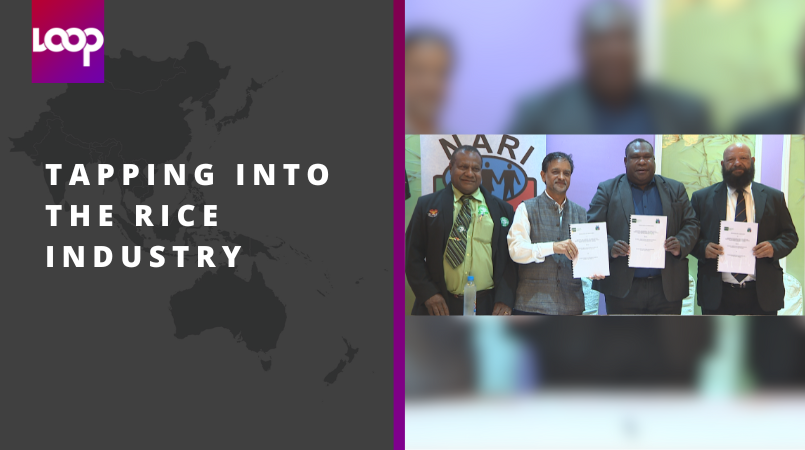
A partnership was forged between the National Agricultural Research Institute (NARI) and International Rice Research Institute (IRRI) to explore and implement innovative agricultural practices and technologies in rice farming and production.
A Memorandum of Understanding (MOU) was signed yesterday in Port Moresby, for scientific and technical collaboration to promote and disseminate high yielding, climate smart and healthier rice varieties.
Agriculture Minister John Boito emphasized on the importance of rice production agreements becoming a reality during last night’s signing ceremony.
Minister Boito spoke of the significant move towards ensuring the rice industry does not echo the unfulfilled promises of the past.
"For too long, the potential for a thriving rice industry in PNG has been a topic of discussion without fruition since 1975. This time, it must be different; it must become a reality," said Minister Boito.
In the 10-year National Agriculture Plan, rice is one of the commodities that the government is looking at.
Agriculture Secretary, Dr. Sergie Bang shared that over this 10-year period, there will be a substantial import replacement and made an undertaking to pursue it.
“We are going to seriously hold a dialogue with all the current rice growers in the country, importers of rice and stakeholders in the rice industry to plan and agree to make sure the government policy is implemented and there will be a gradual replacement of imported rice,” addressed Dr. Bang.
Interim Director General of IRRI, Dr. Ajay Kohli said; “Now it’s about growing quality. IRRI is now in a different trajectory, we are still be working heavily on increasing the productivity, we are now making sure that the rice grain has more minerals, protein and resistant starch. The way it is going, I can tell you in the next 10 years rice will be the healthiest staple food because it will have more protein, minerals, resistant starch and Low-Glycemic index, something we have recently achieved. There is no reason we can’t bring that to PNG.”
Work will now begin under the terms of the MOU to start the process of transforming the agriculture landscape in PNG.
“After the signing, NARI AND IRRI will sit together and scope out key priority interventions and action plans to be developed after this. IRRI has rice varieties that they have used in other countries, they will bring into the country and partner with NARI and we will start planting rice. We will make sure that this rice that we plant will have to scale up,” concluded Director General of NARI, Dr. Nelson Simbiken.
